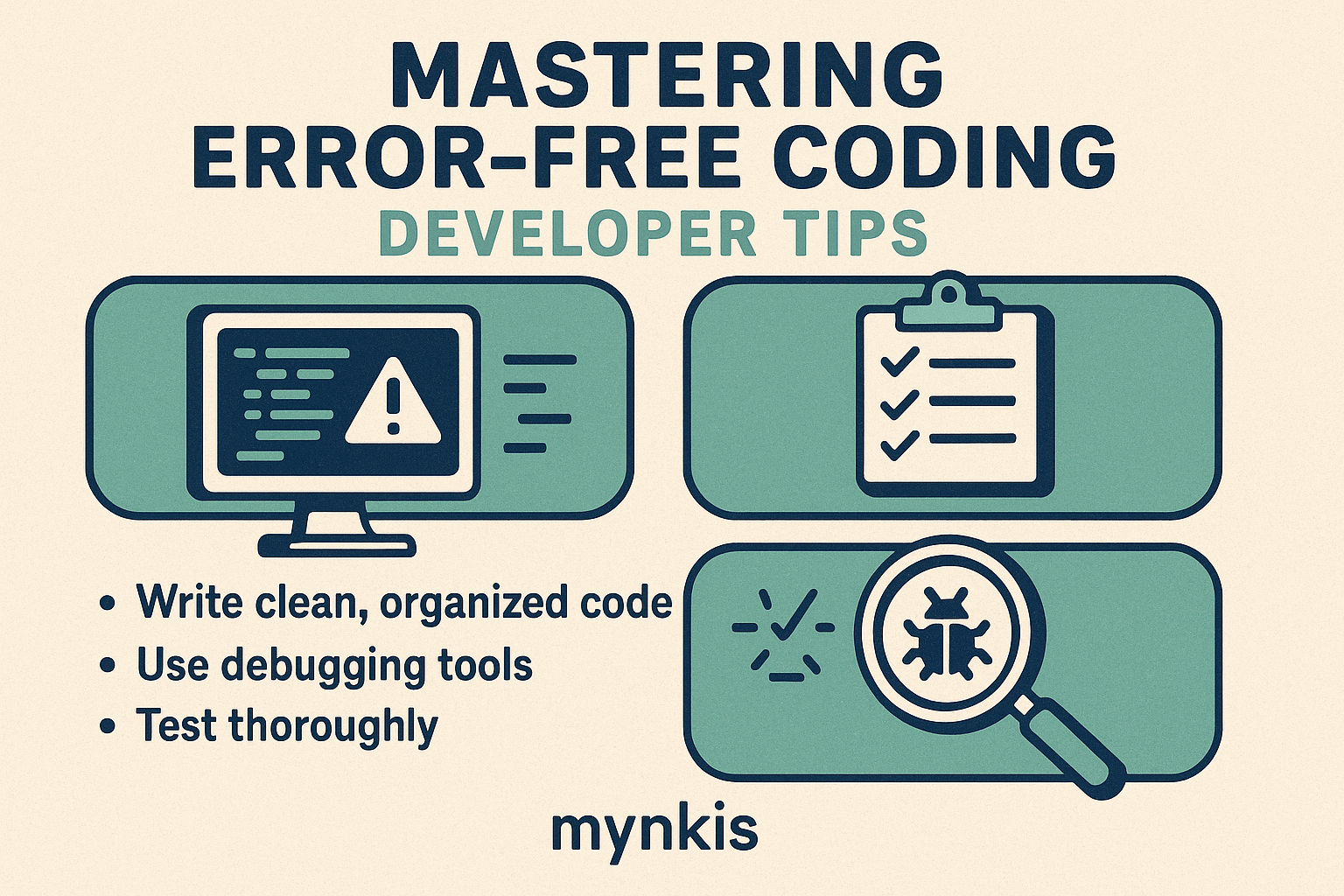Schedule a Demo
Every line of code you write has the potential to either enhance or hinder your project. From my experience working with teams across various industries, I've found that maintaining clean, error-free code isn't just about avoiding bugs—it's about crafting software that's maintainable, scalable, and efficient. When your codebase is free from errors, it streamlines the development process and reduces the time and resources needed for maintenance and debugging.
To consistently produce error-free code, leverage the following tools in your development workflow:
Following best practices in coding is like following a map in unknown terrain: it guides you safely. I've seen countless projects benefit from these methodologies. For starters, adopt a consistent coding style. Whether it's the Airbnb JavaScript Style Guide or the PEP 8 for Python, consistency ensures that your code is more readable and easier to debug for other team members.
Unit tests are the unsung heroes of code development. By testing individual units of your source code, you ensure that each part functions as expected. I've witnessed how automated testing frameworks, such as JUnit for Java or PyTest for Python, not only help in spotting errors early but also build confidence in your code's reliability. Writing tests before you write your code (Test-Driven Development) elevates this process to an even higher level of quality assurance.
In my tenure, I've seen how rigorous code reviews lead to fewer errors and better code. Making code reviews a staple in your workflow not only uncovers subtle mistakes but also promotes shared knowledge within your team. Implement a structured review process, encouraging constructive feedback and ensuring all significant changes pass through multiple reviews.
When errors occur, it's beneficial to dive deeper than the surface fix. Analyzing the root cause helps prevent future issues. This investigative approach, rooted in methodologies like the Five Whys, enhances your problem-solving skills and fosters an environment of continuous improvement.
Integrating CI/CD pipelines automates the testing and deployment processes, minimizing human error. I've noticed projects that employ CI/CD experience significantly fewer deployment-related issues. Services like Jenkins or GitHub Actions ensure that any change to the codebase undergoes rigorous automated tests, providing peace of mind and streamlining your development cycle.
Beyond tools and practices, remember that coding is inherently a human activity. Fostering clear communication within your team, actively listening to feedback, and maintaining a learner's mindset are crucial. In my experience, teams that prioritize these soft skills tend to have a more enjoyable and productive development process, ultimately leading to fewer errors.
Even the best of us can't prevent every error, but effective error handling can mitigate their impact. Implementing comprehensive logging strategies allows you to diagnose issues post-deployment. Ensure your error handling is robust enough to manage expected failures without breaking down the application.
Different coding languages and frameworks have unique error tendencies and best practices. A seasoned developer knows to adapt based on the technology stack. Whether you're working with JavaScript in a Node.js environment or Python in a Django setup, tailoring your error-prevention strategies to the language at hand can significantly enhance your effectiveness.
I recall working on a financial software project where a seemingly minor error in data handling led to significant downstream repercussions. This incident reinforced the importance of understanding how each piece of code fits into the larger puzzle. Real-world examples like this emphasize the need for vigilance and continuous learning in our field.
The tech landscape evolves rapidly, and staying abreast of new tools, techniques, and updates ensures that your code remains error-free. Engaging with community forums, reading tech blogs, and participating in conferences can keep you ahead of the curve. By staying informed, you reinforce your ability to implement the most effective error-prevention strategies.
Modern development often pressures teams to move fast, but speed shouldn't compromise quality. In my work with operations managers, I've seen the fine line teams walk between speedy delivery and meticulous coding. Implementing sprints, regular checkpoints, and thorough code review sessions within agile workflows can help balance the need for speed with the imperative for accuracy.
While the immediate benefits of error-free coding are clear, such as fewer bugs and smoother deployments, the long-term advantages are profound. Projects built on a foundation of clean, well-thought-out code have better scalability, a longer lifespan, and require less overhead for maintenance and updates. Investing time in error prevention and management upfront can pay dividends over the life of the project.
Embarking on your next coding project armed with the tools, practices, and insights outlined here empowers you to build error-free solutions confidently. Every developer's journey to mastery includes enhancing their error-handling prowess. Let these strategies guide you to deliver excellence consistently.
